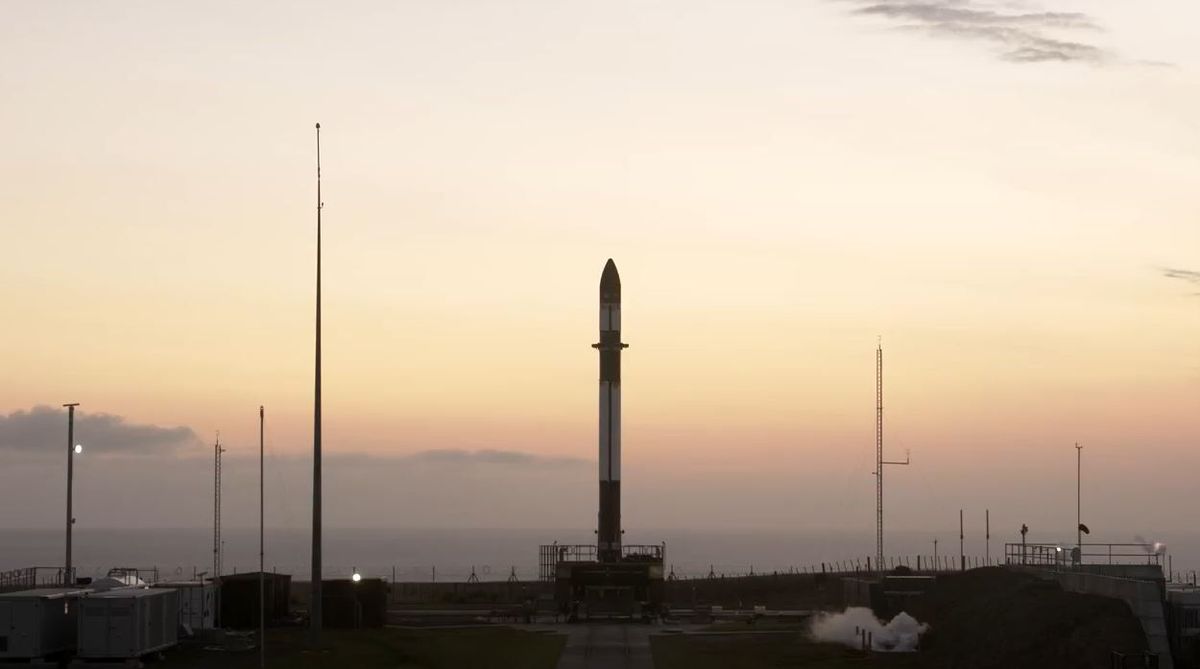Rocket Lab calls off microsatellite launch due to sensor issue

The small-satellite launch company Rocket Lab called off its first launch of 2021 from New Zealand Saturday (Jan. 16) due to strange sensor readings ahead of liftoff.
A Rocket Lab Electron booster was scheduled to launch a microsatellite for the European space technology company OHB Group from New Zealand’s Māhia Peninsula at 2:38 a.m. EST (8:38 p.m. New Zealand time; 0738 GMT), but unexpected data from an inclinometer on the booster prompted a delay.
“We had an inclinometer showing some strange data. It’s not used for flight, but we want to understand it all the same,” Rocket Lab representatives wrote in an update early Saturday. “That’s part of the beauty of operating our own launch range, we have the luxury of time to roll back out when we’re ready.”
In photos: Rocket Lab and its Electron booster
Rocket Lab has a 10-day window in which to launch its first flight of the year, called “Another One Leaves the Crust,” from its Launch Complex 1 site. The mission will mark the 18th flight for Rocket Lab.
“We are standing down from today’s mission to review sensor data,” the company added in another update. “Fortunately we have a 10-day window for this mission, so we have plenty of backup opportunities in the days to come.
The mission’s microsatellite payload for OHB Group is designed to “enable specific frequencies to support future services from orbit,” according to Rocket Lab. The flight was arranged by OHB Cosmos, the launch procurement arm for OHB Group.
Based in Long Beach, California, Rocket Lab launched eight Electron missions in 2020 and is seeking to ramp up its launch rate in 2021 with the addition of two new launch pads. Launch Complex 2 at NASA’s Wallops Flight Facility on Wallops Island, Virginia, is expected to see its first liftoff later this year. Meanwhile, the company is building another pad near Launch Complex 1 to boost its launch capabilities from the Māhia Peninsula.
Email Tariq Malik at tmalik@space.com or follow him @tariqjmalik. Follow us @Spacedotcom, Facebook and Instagram.
